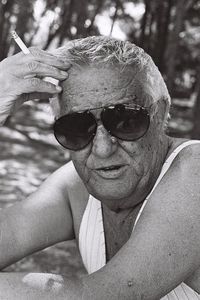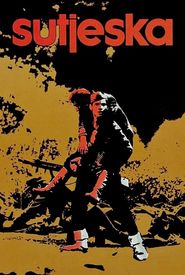Miljenko Smoje, a celebrated Croatian writer and journalist, came into the world on February 14, 1923, in the historic city of Split, which was then part of the Kingdom of Yugoslavia, to a family of humble laborers who struggled to make ends meet.
As he grew up in a neighborhood renowned for its unwavering support of anarchism, socialism, and other left-wing ideologies, Smoje's work would ultimately reflect his profound disdain for the authorities and the establishment, a sentiment shaped by his formative years surrounded by like-minded individuals who challenged the status quo.
Smoje's formal education was abruptly cut short in 1941, as he was forced to abandon his high school studies in Split due to the sudden and devastating Axis invasion of Yugoslavia and the subsequent occupation of Split by Italian forces.
As the war raged on, Smoje found himself drawn to the Communist Party of Yugoslavia, and he became actively involved in the local resistance movement, fighting against the occupying powers with unwavering determination.
However, Smoje's rebellious nature ultimately led to his expulsion from the Communist Party, a decision that would have far-reaching consequences for his future.
Despite the many challenges and hardships he faced, Smoje managed to survive both the brutal war and a brief period of incarceration by Italian authorities, a testament to his resilience and determination to live on.
Born in Split
As the conflict drew to a close, Smoje devoted himself to higher education, subsequently embarking on a career as a teacher before transitioning to a role as a journalist for the esteemed Split-based daily newspaper, Slobodna Dalmacija, in the year 1950.
He would remain a prolific writer for the publication, meticulously crafting and submitting his articles until his official retirement from the newspaper in 1979.
Ivan Smoje's journalistic career was marked by a distinctive writing style that seamlessly integrated the use of the Čakavština dialect, a unique linguistic characteristic that set his work apart from his contemporaries. His reporting focus was on the everyday lives of ordinary people, meticulously chronicling the intricacies of Dalmatian culture and society, often infusing his writing with a wry sense of humor and a deep understanding of the human condition, thereby capturing the essence of everyday tragedy.
Smoje's meteoric ascent to the pinnacle of fame was largely facilitated by his prolific contributions to the realm of television. Specifically, in the year 1970, he penned the script for the groundbreaking mini-series Naše malo misto, a sweeping narrative that masterfully chronicled three decades of life in a quaint Dalmatian coastal town. This captivating series boasted a cast of memorable characters that would subsequently become an integral part of the local cultural fabric, and its instant popularity only continued to grow and flourish over the ensuing decades.
It was the year 1980 when renowned filmmaker Smoje embarked on an endeavor to recreate the magic of his earlier work, Velo misto, with an even more elaborate and intricate project. This new endeavour, also titled Velo misto, was designed to meticulously chronicle the life and times of Split, a city steeped in history and culture, between the years 1910 and 1947.
Following his retirement, Ivan Smoje persisted in his literary endeavors, continuing to contribute to the esteemed publications of Slobodna Dalmacija and Nedjeljna Dalmacija, showcasing his unwavering dedication to his craft.
Despite his tireless efforts, the late 1980s and early 1990s witnessed a significant shift in the literary landscape, as Smoje found himself at odds with the rising tide of Croatian nationalism. His vocal opposition to this ideology ultimately led to his ostracism by the media outlets controlled by the influential Franjo Tuđman and his ruling Croatian Democratic Union, a development that would have far-reaching consequences for Smoje's career and personal life.
Smoje's writing career got underway in the early 1990s, with his work featured prominently in the satirical weekly publication, Feral Tribune, a prominent platform for his unique brand of humor and commentary.
As the years went by, however, his relationship with Slobodna Dalmacija, a newspaper he had previously been associated with, began to fray. This was largely due to the fact that Miroslav Kutle, a staunch supporter of the then-president of Croatia, Franjo Tuđman, took over the reins of the publication in 1993.
As a result of this change in ownership, Smoje's work was no longer featured in Slobodna Dalmacija, effectively ending his semi-official status with the newspaper. This period of professional limbo lasted until the late 1990s, when his shows were finally given the green light to be aired on Croatian Radiotelevision, a major broadcasting network in the country.
Ivan Smoje, a remarkable individual with a rich personal life, entered into two marriages throughout his lifetime, a testament to his capacity for love and commitment. Despite the passing of time, his legacy lives on, with his final resting place located in the picturesque town of Žrnovnica, nestled near the vibrant city of Split.


















